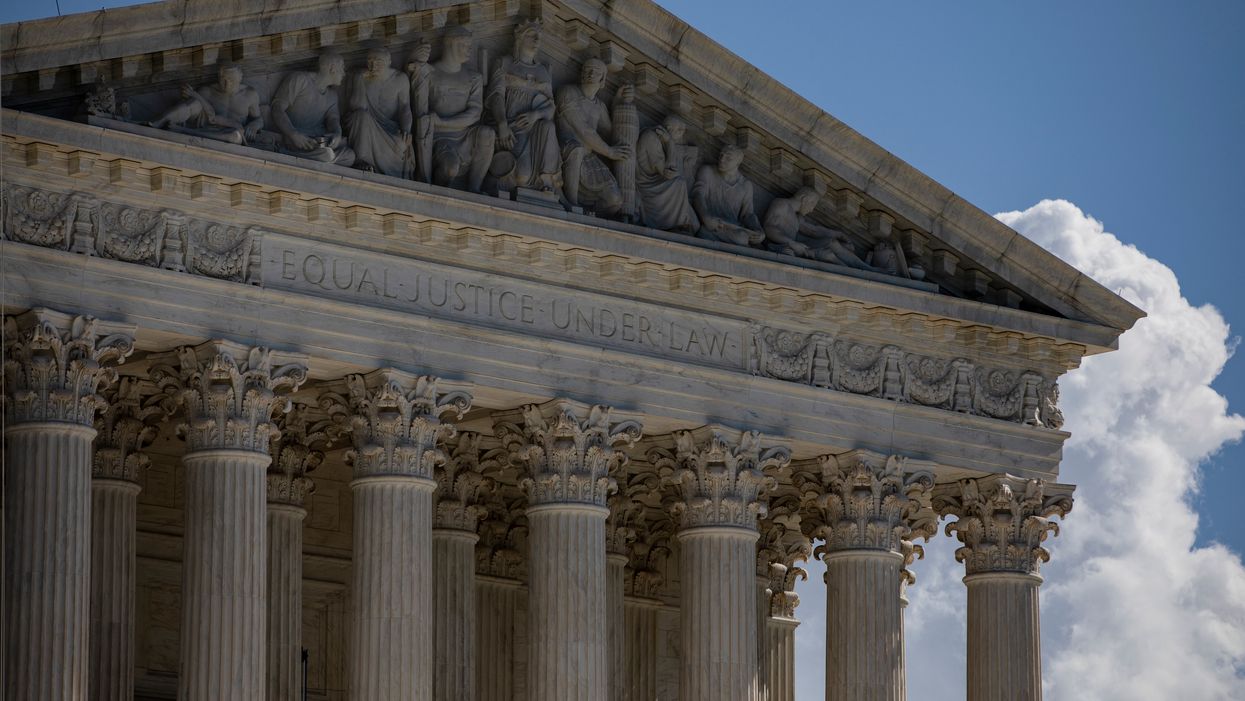Ballots that arrive several days late in the pivotal battlegrounds of Pennsylvania and North Carolina will get counted. But whether all those votes will actually count in the contest for president is still not sure.
That's the main takeaway from back-to-back rulings Wednesday from the Supreme Court. They were likely the last important voting decisions before an Election Day where the ground rules have been whipsawed as never before by partisan litigation fueled by a pandemic.
The Pennsylvania case remains in legal limbo. That because all the court did was say it wasn't going to fully reconsider the three-day grace period before the voting stops — but that it might afterward.
It made that decision after the state promised to to instruct local boards of elections to segregate all the mailed votes that arrive after the polls close Tuesday but before the end of the workday Friday — making it logistically possible to remove that part of the tabulation later, potentially changing the outcome in a tossup state with 20 electoral votes. (As of Thursday, 1 million requested absentee ballots in the state had not yet been returned, while 2.1 million had.)
The nine-day extension that North Carolina has granted for ballots postmarked as late as Tuesday was locked down by the court, however — so the presidential race could be up in the air until Nov. 12 or longer if the state's 15 electoral votes prove decisive. (The state says 600,000 of its requested mailed ballots have not come back.)
Justice Amy Coney Barrett, on the bench only a day, did not participate in either case because, the court said, she had not had time to get up to speed on the disputes.
The non-legalistic bases of both are the same. People are voting absentee in unprecedented numbers to avoid possible coronavirus exposure at their polling places. Democrats have spent months pushing for more leniency in the distribution and counting rules for mailed ballots. And Republicans have fought them at almost every turn, arguing with hardly any evidence that such relaxations will sully American democracy with cheating.
The Pennsylvania extension was ordered by the state Supreme Court, based on the belief that the state Constitution required the easements to protect voting rights in light of Covid-19 and pervasive Postal Service delays. The Supreme Court first upheld that decision on a 4-4 tie last week. Chief Justice John Roberts joined the court's three liberals, later explaining his position that state courts are free to interpret their own state constitutions in voting cases.
The state Republican Party tried again, and on Wednesday only three of the most conservative justices said they wanted to decide the case in the week before Election Day and will ask their colleagues to pick it up afterward: Samuel Alito, Clarence Thomas and Neil Gorsuch.
The same three also dissented from the North Carolina decision, which was unsigned and had no majority opinion. It upheld a federal appeals court, which ruled 12-3 last week that the state Board of Elections could extend the deadline under its authority to change voting rules during emergencies. (It's done the same thing after hurricanes in two recent election years.)
Where the court takes election law next is a bit unclear.
Alito declared that, by not finalizing the Pennsylvania fight, the election will be "conducted under a cloud" and the court has "needlessly created conditions that could lead to serious postelection problems."
He also reiterated his view that the federal Constitution gives state legislatures exclusive authority to make the rules for their congressional and presidential elections.
That echoed a concurring opinion issued on Monday by Justice Brett Kavanaugh when the court struck down an absentee ballot extension in another battleground, Wisconsin, that had been ordered by a federal judge. His opinion has alarmed some legal scholars and democracy reformers because it pointed to the Supreme Court's decisions in cases culminating in Bush v. Gore. That 5-4 ruling, which settled the disputed 2000 results in Florida and handed the presidency to George W. Bush, has been ridiculed ever since as both legally flawed and motivated by raw partisanship.




















